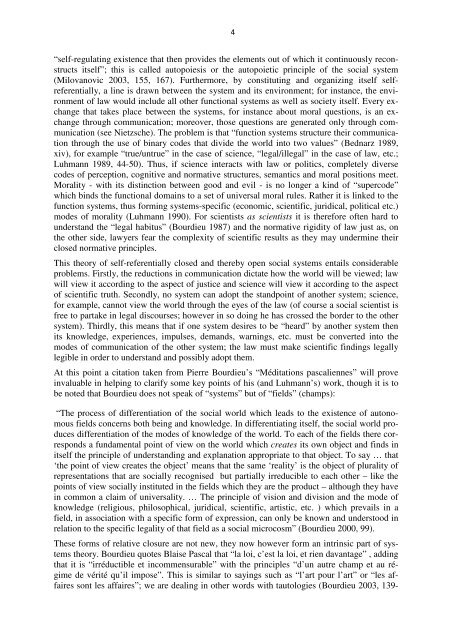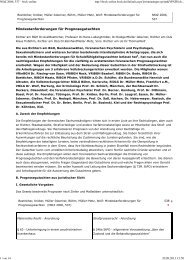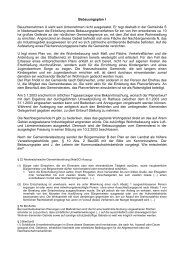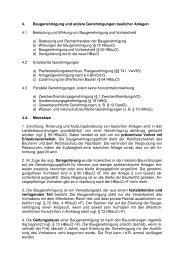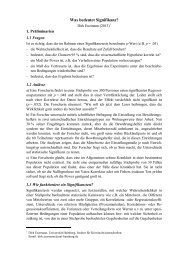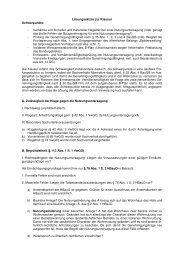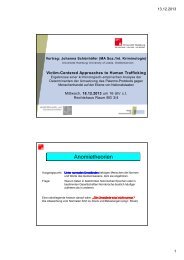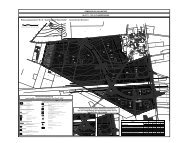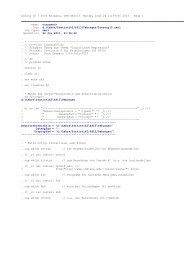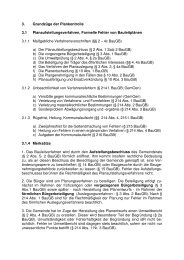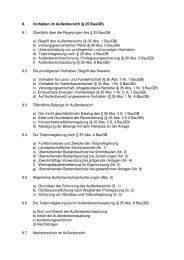Sessar Porto Problems criminology has with criminal law
Sessar Porto Problems criminology has with criminal law
Sessar Porto Problems criminology has with criminal law
You also want an ePaper? Increase the reach of your titles
YUMPU automatically turns print PDFs into web optimized ePapers that Google loves.
4<br />
“self-regulating existence that then provides the elements out of which it continuously reconstructs<br />
itself”; this is called autopoiesis or the autopoietic principle of the social system<br />
(Milovanovic 2003, 155, 167). Furthermore, by constituting and organizing itself selfreferentially,<br />
a line is drawn between the system and its environment; for instance, the environment<br />
of <strong>law</strong> would include all other functional systems as well as society itself. Every exchange<br />
that takes place between the systems, for instance about moral questions, is an exchange<br />
through communication; moreover, those questions are generated only through communication<br />
(see Nietzsche). The problem is that “function systems structure their communication<br />
through the use of binary codes that divide the world into two values” (Bednarz 1989,<br />
xiv), for example “true/untrue” in the case of science, “legal/illegal” in the case of <strong>law</strong>, etc.;<br />
Luhmann 1989, 44-50). Thus, if science interacts <strong>with</strong> <strong>law</strong> or politics, completely diverse<br />
codes of perception, cognitive and normative structures, semantics and moral positions meet.<br />
Morality - <strong>with</strong> its distinction between good and evil - is no longer a kind of “supercode”<br />
which binds the functional domains to a set of universal moral rules. Rather it is linked to the<br />
function systems, thus forming systems-specific (economic, scientific, juridical, political etc.)<br />
modes of morality (Luhmann 1990). For scientists as scientists it is therefore often hard to<br />
understand the “legal habitus” (Bourdieu 1987) and the normative rigidity of <strong>law</strong> just as, on<br />
the other side, <strong>law</strong>yers fear the complexity of scientific results as they may undermine their<br />
closed normative principles.<br />
This theory of self-referentially closed and thereby open social systems entails considerable<br />
problems. Firstly, the reductions in communication dictate how the world will be viewed; <strong>law</strong><br />
will view it according to the aspect of justice and science will view it according to the aspect<br />
of scientific truth. Secondly, no system can adopt the standpoint of another system; science,<br />
for example, cannot view the world through the eyes of the <strong>law</strong> (of course a social scientist is<br />
free to partake in legal discourses; however in so doing he <strong>has</strong> crossed the border to the other<br />
system). Thirdly, this means that if one system desires to be “heard” by another system then<br />
its knowledge, experiences, impulses, demands, warnings, etc. must be converted into the<br />
modes of communication of the other system; the <strong>law</strong> must make scientific findings legally<br />
legible in order to understand and possibly adopt them.<br />
At this point a citation taken from Pierre Bourdieu’s “Méditations pascaliennes” will prove<br />
invaluable in helping to clarify some key points of his (and Luhmann’s) work, though it is to<br />
be noted that Bourdieu does not speak of “systems” but of “fields” (champs):<br />
“The process of differentiation of the social world which leads to the existence of autonomous<br />
fields concerns both being and knowledge. In differentiating itself, the social world produces<br />
differentiation of the modes of knowledge of the world. To each of the fields there corresponds<br />
a fundamental point of view on the world which creates its own object and finds in<br />
itself the principle of understanding and explanation appropriate to that object. To say … that<br />
‘the point of view creates the object’ means that the same ‘reality’ is the object of plurality of<br />
representations that are socially recognised but partially irreducible to each other – like the<br />
points of view socially instituted in the fields which they are the product – although they have<br />
in common a claim of universality. … The principle of vision and division and the mode of<br />
knowledge (religious, philosophical, juridical, scientific, artistic, etc. ) which prevails in a<br />
field, in association <strong>with</strong> a specific form of expression, can only be known and understood in<br />
relation to the specific legality of that field as a social microcosm” (Bourdieu 2000, 99).<br />
These forms of relative closure are not new, they now however form an intrinsic part of systems<br />
theory. Bourdieu quotes Blaise Pascal that “la loi, c’est la loi, et rien davantage” , adding<br />
that it is “irréductible et incommensurable” <strong>with</strong> the principles “d’un autre champ et au régime<br />
de vérité qu’il impose”. This is similar to sayings such as “l’art pour l’art” or “les affaires<br />
sont les affaires”; we are dealing in other words <strong>with</strong> tautologies (Bourdieu 2003, 139-


